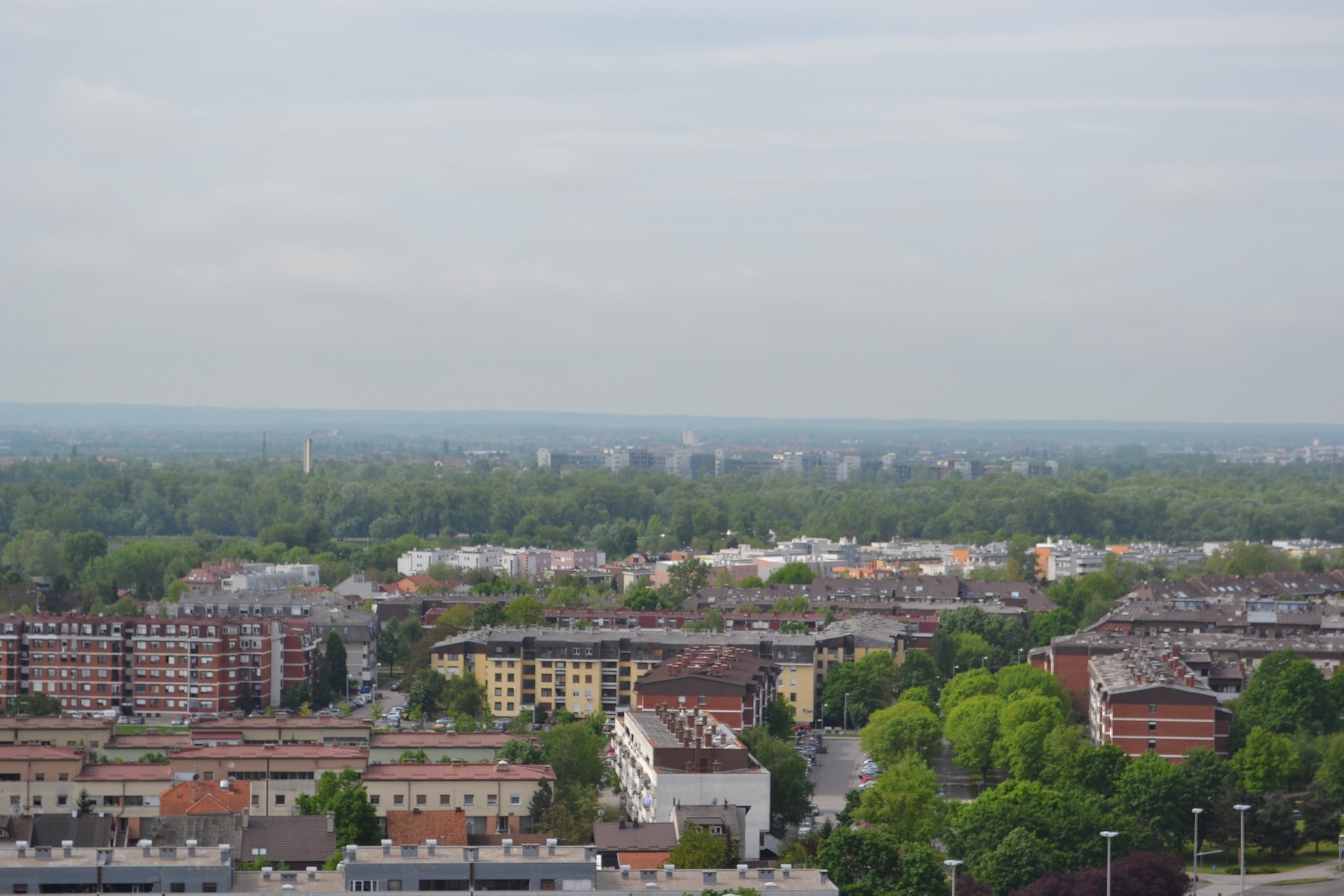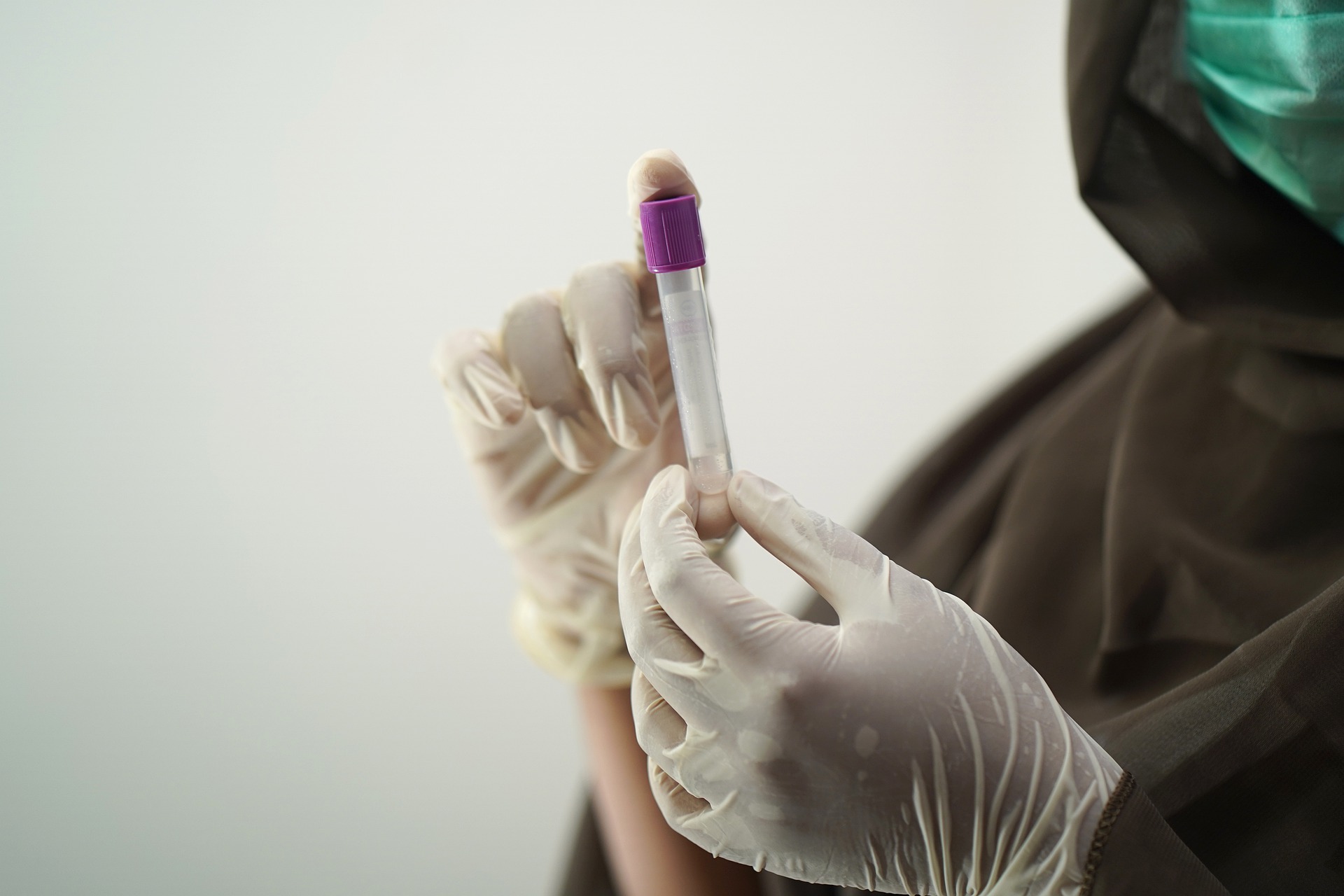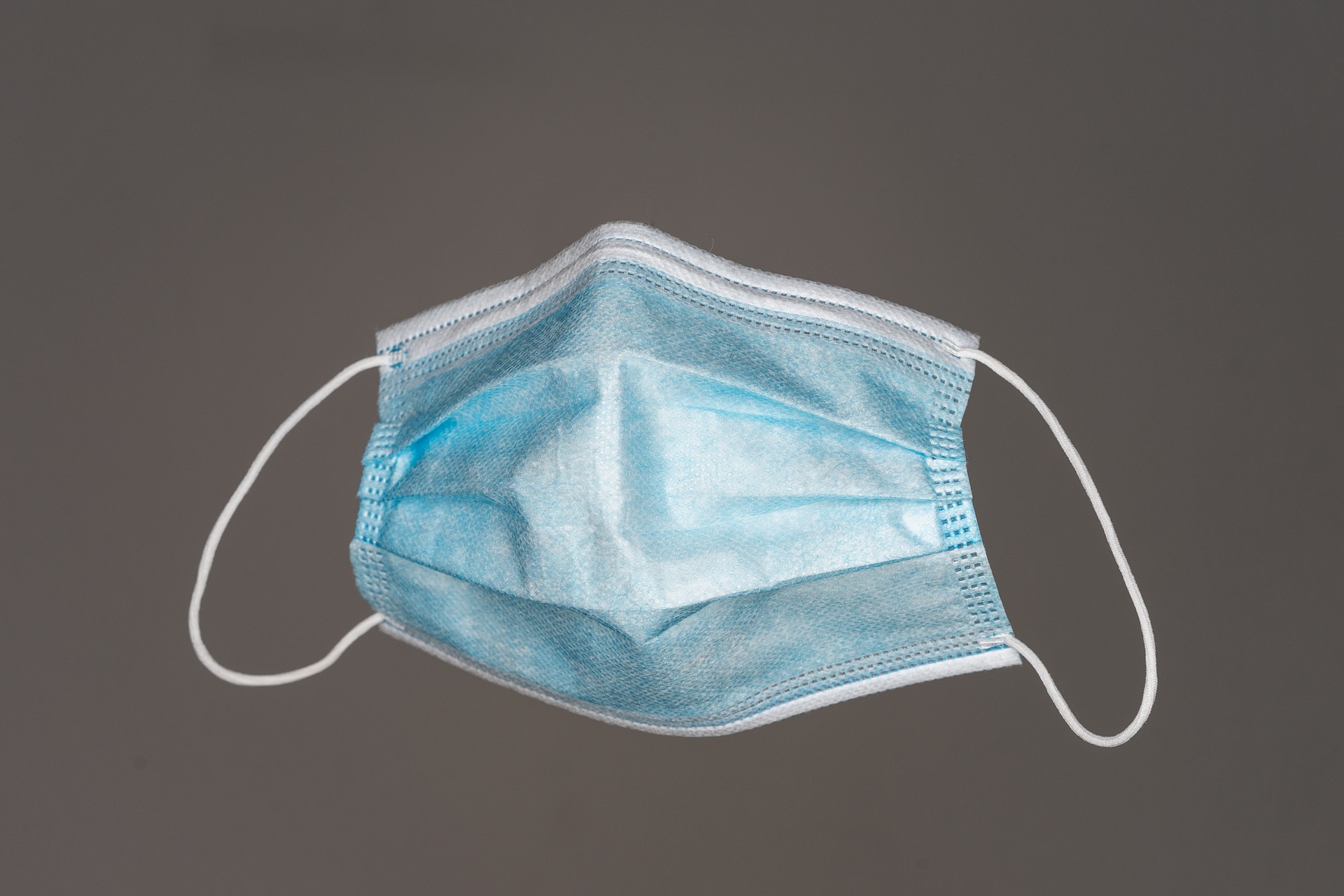Opposition Mps: Abortion Should Be Available In All Hospitals
ZAGREB, 5 May 2022 - Female lawmakers from the Social Democratic Party (SDP), Social Democrats, Green-Left Boc, Centre, GLAS, Croatian Peasants' Party (HSS) and Workers' Front announced on Thursday they would once again send a motion to Parliament for abortion to be made available in all hospitals in Croatia.
"The case where a child was diagnosed with a malignant tumour in the 26th week of pregnancy and could die, and if it doesn't, it will live like a vegetable has shaken us all but unfortunately, this is just the consequence of a problem that Croatia has been faced with for years," MP Sabina Glasovac (SDP) said at a joint press conference.
Glasovac said that the law treats Croatian women as "second-rate" recalling that the Constitutional Court had clearly said already in 2017 that the present law, dating from 1978, should be updated and made implementable. The government has done nothing in that regard "because of fear of losing part of its electorate and in that way, it is sacrificing the health and lives of women."
Glasovac said that the opposition did not just watch from the sidelines but reacted in 2020 by submitting a bill. However, the government did not react to it.
She announced that the opposition would once again submit its bill into the procedure and collect signatures from MPs to 'push' it onto the Sabor's agenda prior to the summer recess.
"We will seek that every health institution regardless of conscientious objection ensures a sufficient number of doctors who will provide this medical service to terminate a pregnancy without seeking the reason for it, for it to be ensured and legally implementable," Glasovac announced.
Katica Glamuzina (Social Democrats) said that they are inviting Health Minister Beroš to come to the Sabor and explain why the law has not been adopted in the past three years, why the conscientious objection is not regulated by any act and why patients are referred to Slovenia to pay €1,000 for something they should have for free in their own country.
Raukar Gamulin (ZLB): System has left the desperate pregnant woman on her own
Urša Raukar Gamulin (Green-Left Bloc) said that the incomprehensible tragedy of a pregnant woman was not enough and that the system has left her to be completely on her own.
"The thing that happened to that pregnant woman is a tragedy of the system and has shown that there is no 'health system' to protect women. The system is obliged to ensure an abortion for every woman regardless of conscientious objection because what is happening now is inhumane and has no regard for that woman. We do not know how many women have been referred to Slovenia to solve their problem, but as she said, she is a citizen of Croatia and wants to solve her problem in Croatia," Raukar Gamulin said.
Katarina Peović (Workers' Front) warned that the vested right, support from the science community, and support from the legislature for women ensuring their health and right to manage their own bodies "did not last long."
"We will fight with all our means to raise that issue to a higher level, to put it in the public sphere, because only the fight by both men and women can restore this right that was once won," she said.
For more, check out our politics section.
Hospitals Mobilised Due to Rise in COVID Cases, Says Health Minister
ZAGREB, 28 Oct 2021 - Health Minister Vili Beroš said on Thursday 33.77% of coronavirus tests were positive and that hospitals would be additionally mobilized, including the reopening of the Arena Zagreb center for the treatment of COVID-19 patients.
Speaking at a cabinet meeting, Beroš said 74.5% of those infected and 75% of those hospitalized over the past week had not been vaccinated, and that among today's new cases 27% were under 20 and 60% were aged 20-40.
"The health system is preparing for new, additional burdens," he said, adding that experts of the Health Ministry's crisis management team concluded yesterday that it was necessary to increase the number of beds and intensive care units in Zagreb.
The ministry has instructed county civil protection teams and health centers to reopen COVID departments to relieve the pressure on hospitals.
Beroš said there was increased interest in vaccination, with 3,790 more people receiving the first dose in the first three days of this week than last week.
He said 56% of adults and over 88% of doctors have been vaccinated and urged everyone, notably the elderly, to get vaccinated. More than 14,000 persons have received a booster shot, he added.
The head of the national COVID-19 crisis management team, Interior Minister Davor Božinović, said the increase in new cases showed that people did not comply with COVID rules as much as they should.
That is why police, civil protection, and state inspectors will step up the monitoring of compliance in public transport, hospitality establishments, shopping centers, and at public gatherings, including weddings, he added.
For all you need to know about coronavirus specific to Croatia, make sure to bookmark our dedicated COVID-19 section and select your preferred language.
COVID Certificates to Be Mandatory in Hospitals, Says Minister
ZAGREB, 10 Sept 2021 - All medical workers will soon have to have COVID certificates or be tested once a week, Health Minister Vili Beroš said on Friday, adding that as of Monday the public would be informed differently about the COVID situation in Croatia.
The epidemiological situation is such that we must introduce COVID certificates in the health system, he said at the weekly press briefing of the national COVID-19 crisis management team.
Patients and sick people will not have to have COVID certificates so that access to healthcare is not restricted.
"We wish to reduce the possibility of infection in a health institution. We must ensure healthcare for everyone, and only half the adult population have been vaccinated," Beroš said.
The COVID certificate requirement is being considered for other sectors too, notably social care, but the decision will be made by experts, he added.
Medical workers without a certificate will have to be tested once a week, at first free of charge and later at their expense.
Beroš said that as of next week reporting on the COVID situation in Croatia would focus on the percentage of vaccinated and unvaccinated hospitalised patients.
He said Croatia was "totally unnecessarily" on the red COVID list as of yesterday. "The way out is in increasing the number of those vaccinated."
He said that Denmark, for example thanks to its high vaccination rate, was lifting all restrictions today.
Croatian Institute of Public Health director Krunoslav Capak said infections had been rising considerably week on week since late August. He added that incidence was lowest in Istria County and highest in Split-Dalmatia County.
Capak also said that census takers would not have to have COVID certificates but would have to comply with COVID rules when the population census begins later this month.
For more news, CLICK HERE.
Croatian Healthcare Workers: Christmas's Forgotten Heroes?
December 28, 2020 – Amidst the difficulties of a second lockdown, a socially distanced Christmas and yet more earthquakes, have we forgotten about Croatian healthcare workers? TCN decided to interview a doctor working on the front line of the fight against COVID
During the first lockdown, it was all about the balconies. Saxophonists, DJs, opera singers – we were entertained on social media by a string of balcony-based stunts that somehow showed resilience, community spirit, humour. Zagreb was no exception. A trend of clapping on balconies in appreciation of healthcare workers passed from country to country and was picked up in Zagreb. After the applause finished, people went back inside. Nothing much had changed. It was a nice enough gesture.
Since the start of summer, no such applause has been heard. Perhaps the release from lockdown gave the signal that the lives of Croatian healthcare workers had also become much easier? That certainly wasn't the case. Though the number of people infected with COVID has grown significantly over recent weeks, Croatian healthcare workers have been treating people sick with COVID since springtime.
Croatian healthcare workers are currently busier with COVID patients than at any time before. And yet, there are no more trips out onto the balconies to show our appreciation for them. Perhaps it's now too cold outside? Perhaps some aren't aware how busy Croatian healthcare workers currently are with COVID patients? Are we perhaps guilty of taking Croatian healthcare workers for granted? Or, maybe we have simply put Croatian healthcare workers to the back of our minds as we struggle with our own challenges?
Throughout this year, TCN has been pleased to report many instances of generosity and innovation directed towards the fight against COVID. Certainly, not everyone in the country is guilty of forgetting about the Croatian healthcare workers who are on the front line fighting this disease. But, how much impact do these instances have on the general lives of Croatian healthcare workers? What is it like to no longer hear the nightly appreciation from our balconies? And, just what is life like as one of the many Croatian healthcare workers battling COVID in the year of the pandemic? TCN decided to interview one to find out.
The doctor we spoke with is a resident physician, working at a smaller community hospital in the continental part of Croatia. They agreed to speak with us on the condition that they do so anonymously.
Looking back at the first lockdown, we didn't know so much about COVID back then. We didn't know exactly how it was spread, the different manifestations of the disease, what course the disease took, nor what the recovery could be like. I think the government did a really good job of responding to the threat as they saw it. We had a small spike in cases, but that is minuscule to what we have now.
I think people generally did what they were told because they thought it would be temporary and they could see the sense in starving the disease out.
At the hospital, we were at first caught a little off guard with the amount of PPE we had and some other resources that we needed. For ICU and ventilators, we were well equipped.
Some of the residents were given some paid leave. It was important to put human resources into tiers. Croatian healthcare workers were certainly more predisposed to catching the disease, simply because they were around it every day.
After such great early successes, I was surprised that everything was relaxed later on to allow the tourist season to take place how it did, and for events like the Vukovar commemoration. It felt like it was a calculated risk. The lockdown we are now in is perhaps too little, too late. The disease is out there now, wild. The numbers of infected people are significantly higher.
The difficulty with this disease is that people can be infected and have very few or no symptoms at all. They might not know they are spreading the virus. You might not know you're sitting next to someone who has it.
Even though we're not at the centre of care for a major population area or city, we saw cases of the disease almost immediately. Our community hospital services an area containing around 150, 000 people. The first cases in April came from nursing homes – elderly, vulnerable people, many with pre-existing conditions. We were well equipped to handle it. Now, we are stretched on a daily basis. We fill the beds with sick people as soon as we empty them.
We wear masks and PPE all day, all the time. All Croatian healthcare workers in hospitals currently do this. Every patient who comes in, regardless of their symptoms, we treat them as though they are carrying the disease.
A lot of residents like me, who are working towards getting their specialty, go to do some periods of work in larger hospitals in the bigger cities. Now, many of those residents have been called back to their community hospitals – we are short on human resources.
The hospital has had to restructure itself significantly. Lots of doctors have been asked to provide cover in the emergency department. Over half of that area is now fully dedicated to COVID.
What do COVID patients look like in regards to their symptoms? It depends on their age and risk group, but you see people who look like they have flu or bacterial pneumonia, you see people who are in acute respiratory distress. Sometimes they have neurological changes, some of them look like they have had a stroke. Some people who have been infected and have supposedly got over the worst of the symptoms, come back in after a month or two with blood clotting problems – blood clots in the legs, which have a tendency to travel up to the lungs and cause a pulmonary embolism. That's a pretty big medical emergency. Some who have pre-existing heart conditions come in with a heart attack triggered by them catching COVID – it's more complicated trying to revive someone when you know they have COVID. The presentation of the disease is so variable.
It's not only older people. I've seen young people be admitted with serious reactions to COVID - young, healthy people who have no pre-existing conditions. I've seen young people come in with mild symptoms, they are sent home with antibiotics and steroids. That is the standard treatment – antibiotics to prevent a bacterial super-infection and steroids to prevent an acute reaction by the body's immune system to COVID. - that's what can cause big problems later on, in the course of the illness. But, sometimes that's not enough. I had a young patient just last week - super healthy, worked out regularly, no pre-existing conditions – and his lungs just looked awful. He had to go to the ICU immediately (sadly, this patient later died). That's like no disease I've ever seen before. Really, COVID is a completely new kind of animal.
The new strain of COVID? There is evidence that it can be spread more easily, and that it can affect more younger people, but there is no evidence that it is any more severe. The vaccines will work against it.
We're short on ventilators now. Really, we need two free ventilators at any time, in case there is an emergency admission. We are not currently in the position where we always have two free ventilators – sometimes they are all in use. That's a worry. I worked one shift where the anaesthesiologist said “We just don't have any more space for them – we will just have to put them in the hallway”. I've never seen that before.
I've heard of Croatian healthcare workers, colleagues in other hospitals getting sick with COVID and the hospital asks them to prove they got sick at work. It's pretty clear that's the most likely place they would have got sick because they're working with COVID patients. They were forced to be off work, but only on a lower level of sick pay. If you get ill because of being at work, you get full pay. But, they couldn't prove it, so they didn't get that.
I've been lucky – I haven't caught COVID yet. Well, as far as I know. My pay hasn't gone down, it's gone up – but only because I'm working so many double shifts. I volunteer to provide cover when other members of staff get sick. The specialists – the consultant doctors – they have it worse than us resident doctors. They are more responsible, so they are expected to work more hours. Nobody is pressured or threatened into picking up extra shifts, it's just something that almost all of us just do.
I've read some nice stories about fundraising efforts and donations to Croatian healthcare workers and hospitals in different parts of the country. Everything is appreciated. But, I personally haven't seen any effect of that on our day to day lives at work. Not at our hospital. Maybe there were PPE donations or cash donations, but it hasn't impacted the daily lives of me and the Croatian healthcare workers who are my colleagues. I think I heard that a local garage was giving free cups of coffee if you show your medical ID. Every little is appreciated.
For me and the Croatian healthcare workers who are my colleagues, instead of any kind of personal discounts or donations to staff, we would much prefer if people just took this disease more seriously. Things look very different when you work in a hospital compared to someone outside who maybe doesn't know anyone who got sick.
I came off a particularly difficult double shift a couple of months ago – it was just non-stop COVID admissions, some severe cases. As I was walking home, I walked past a bar that's near to the hospital. They had signs on the walls telling people to keep their distance. But, the bar was absolutely packed – full of young people. It just felt so disappointing. I couldn't help but think of the older relatives they would come in contact with, some who might get really sick.
Instead of people clapping on balconies, I think Croatian healthcare workers would just prefer more general vigilance and personal responsibility – wear your mask, wash your hands regularly, no more parties in the basement. Clapping on balconies is a nice gesture, but ultimately it's an empty one.
How does it feel to know that there are some people out there, in every country, all around the world, who believe COVID is a hoax, or a plot, or not so serious, or that the vaccine is dangerous or something other than what it is?
Well, it's not always the content of the conspiracy theory that appeals to these people as much as it is their inability to accept facts – the truth – because they have little faith in the authorities that are telling them this. Here in Croatia, I think that distrust is quite high – a lot of people are disillusioned with the state and politics, because of corruption. Sometimes over 50% of the population choose not to vote. The dissemination of misinformation over social media doesn't help - if that's where people get their news from. If you look at that example from your own country, where strict measures about movement were put in place by your government, and immediately afterward, the Chief Advisor to the Prime Minister, was caught breaking them to travel across the country with his family to a second home in the countryside, going out on day trips. And he was defended by his colleagues after he was found out! When people see those kinds of things happening, the distrust between people and the authorities just grows.
All of the images in this article are used as illustrations only. None of the places or people depicted are in Croatia or Croatian, except for the first image, a panorama of Zagreb
Zagreb Children's Hospital Gets Therapy Dog
September 3, 2020 – A Zagreb Children's Hospital is preparing to welcome its first canine member of staff – Jupi, a border collie
They are often said to be the most intelligent of all dogs. Used traditionally for herding livestock, border collies can learn a very large number of signals and commands. They are eminently trainable. Now, that intelligence is to be applied to the area of therapy, as one Zagreb children's hospital prepares to welcome its first border collie as a member of the team.
Still only a puppy, Jupi is being prepared for the role by her owner, Iva Zečević, a clinical psychologist at the Psychiatric Hospital for Children and Adolescents. At the moment, Jupi still needs to get her jabs, go for training and pass a therapy dog exam, Iva revealed to Jutarnji List journalist Lada Novak Starčević in a recent interview.
Border collies are very intelligent and eminently trainable. They take their name from the sheep farming lands which are situated on both sides of the Anglo-Scottish border © Yuppy Ermeton
Iva is undertaking the training herself with help from puppy coach Ana Odak and The Croatian Association for the Training of Guide Dogs and Mobility. Iva decided to dedicate herself personally to the task because she knows the Zagreb Children's Hospital where she works would struggle to pay for a fully trained therapy dog. Despite the time and costs involved in the necessary process, Iva has previously seen the positive effects dogs can have on her patients and knows it's a worthwhile undertaking. She is an experienced dog owner and has kept and trained several, although this is the first she has trained as a therapy dog.
Border collies are so clever that they thrive best in households that can give them lots of play and exercise. It is a British breed of dog, taking its name from the sheep farming lands which are situated on both sides of the Anglo-Scottish border. The word collie comes from the old Celtic word for useful.
All of today's purebred border collies can trace an ancestral line back to one dog. Old Hemp lived in Northumberland between 1893 and 1901 and was so skilled in his work with sheep, as well as having exactly the right temperament, that many shepherds used him as a stud for their future working dogs. Old Hemp is believed to have sired as many as 200 puppies to be reared as sheepdogs.
For the latest travel info, bookmark our main travel info article, which is updated daily.
Read the Croatian Travel Update in your language - now available in 24 languages
From Lovran to Zagreb: How Do Croatia's Hospitals Stand Financially?
As Novac/Frenki Lausic writes on the 4th of May, 2019, across 59 hospitals in Croatia, a total of 41,692 workers are employed, out of a total of 65,000 employees in the health care system, and the share of health workers in the total number of hospitals ranges from 70.1 percent in the Lovran Orthopedic Clinic, to 81.2 percent at the Clinical Hospital Centre in Zagreb.
From this data, it could easily be concluded that the hospital in Lovran operates poorly, as it has a large number of administrative staff who aren't directly involved in the care of patients, while KBC Zagreb is best placed financially because it has the least employees in administration. The reality is exactly the opposite: Lovran is the best Croatian medical institution financially, making it one of the ten major state hospitals operating without any losses, while KBC Zagreb has the biggest losses, the most obligations, and the most outstanding unpaid obligations.
However, data on the positive financial performance of hospitals may be correlated with the fact that the largest share of beds (in total capacity) is boasted by the clinic in Lovran, 82.61 percent, while OB Varaždin, one of the general hospitals with the worst business indicators, has the largest number of beds for long-term and chronic treatment, as well as palliative care (511 beds, or 49.18 percent of the total bed capacity of the hospital) due to the merging of the Novi Marof Hospital for Chronic Disease and the Hospital for Lung Diseases, and TBC Klenovnik OB Varaždin.
Therefore, the status and causes of success and failure in Croatia's hospitals need not be judged at first impression because each hospital is a special case for itself and requires a deeper analysis. However, there are also common denominators when it comes to the ''bad'' side of the Croatian hospital system, ranging from poor financial results, some bad patient outcomes, long waiting lists, and some institutions with literally horrible sanitation facilities.
In response to a survey conducted by Maja Vehovec, Ivana Rašić Bakarić and Sunčana Slijepčević, researchers from the Economics Institute back in 2012, which included one director of the Clinical Hospital Centre, three directors of general hospitals and two directors of special hospitals and representatives of the association of employers in the health system, it can be seen that when finances are in question, "the root cause of the problem with not paying costs is seen by directors as a continuous imbalance between the revenue received and the expense accounted for."
The basic part of the hospital's income is, in fact, the income that the hospital receives from HZZO, which are presented as the so-called "limits", ie, the annual budget funding which was introduced back in 1997.
For this reason, the authors point out that the limits to be allocated to hospitals should be based on objective indicators such as the number and types of surgeries, the number and type of outpatient examinations and the like, ie, the costs of each activity. The second management model in this part, based on the payment of the services provided, began being implemented back in 2015, at the time when Croatia was ruled by an SDP government, but such a practice was later stopped by the HDZ government, which returned the "limits" method the following year.
The Croatian Government and the Ministry of Health have decided to ''repair'' the situation this year by increasing their contributions to the healthcare system from 15 to 16.5 percent.
Make sure to follow our dedicated lifestyle page for more information on Croatia's healthcare system, hospitals in Croatia, the quality of treatment in Croatia and much more.
Click here for the original article by Frenki Lausic for Novac/Jutarnji


